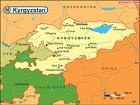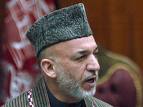Wednesday
Apr282010
The Latest from Iran (28 April): Making a Date
 Wednesday, April 28, 2010 at 23:59
Wednesday, April 28, 2010 at 23:59  2130 GMT: Controlling the Teachers. Radio Free Europe/Radio Liberty summarises the pressure by Iranian authorities on teachers ahead of Teachers Day on 2 May.
2130 GMT: Controlling the Teachers. Radio Free Europe/Radio Liberty summarises the pressure by Iranian authorities on teachers ahead of Teachers Day on 2 May.This includes the arrest of two senior members of Iran's teachers union, Ali Akbar Baghani, and spokesman Mohammad Beheshti Langarudi, warnings to activists in several cities, including Tehran and Tabriz, not to take part in any protests, and fines and arrests for demonstrating. It is reported that several blogs and websites on teachers' issues have been blocked.
NEW Iran Document: English Text of Mousavi-Karroubi Meeting (26 April)
NEW Iran: President Ahmadinejad’s Joke of the Day
Iran’s Detained Journalists: EA’s (Vicarious) Confrontation with Foreign Minister Mottaki
Latest Iran Video: Mousavi & Karroubi Meet (26 April)
Earlier this week, the Coordinating Council of the Teachers Trade Unions called for a hunger strike on Teachers' Week (May 2-8) to protest prison sentences and death penalties handed out to teachers. Four teachers are reported to have been jailed in recent months and at least one, Kurdish teacher Farzad Kamangar, is facing the death penalty.
2045 GMT: Corruption Watch. Conservative member of Parliament Ali Motahari has criticized Iran's judiciary for lack of independence and nepotism.
Motahari told the Iranian Students News Agency that, in corruption cases involving relatives of top officials, prosecutors are seeking permission from the officials themselves before even investigating.
1600 GMT: Oil Squeeze Posturing. In an interview with Khabar Online, Ali Vakili, the managing director of Iran's Pars Oil and Gas Company, has warned Royal Dutch Shell and Spain's Repsol that they must declare if they plan to pursue a project, agreed in 2007, to develop liquefied natural gas in the South Pars field.
Shell recently announced that it is suspending all involvement in the project.
Vakili insisted that Iran can develop the South Pars, having overcome financial obstacles, and that it has the necessary technology.
1530 GMT: We've posted a special separate entry: the English translation of Monday's discussion between Mir Hossein Mousavi and Mehdi Karroubi.
1245 GMT: Political Prisoner Watch. The lawyer for reformist politician Mostafa Tajzadeh has said that Tajzadeh has not yet reported to prison to begin his six-year sentence: “My client was admitted into a hospital in Tehran because of his disc problem (in his back)....During the past 2 days, my client was expected to introduce himself to the prison to continue serving his prison term; however, this has not happened....As soon as his physical condition improves, he will present himself to the authorities.”
0845 GMT: Corruption Watch. Mardomsalari newspaper frets that corruption has become a political issue and warns that "justice" should end it once and for all before foreign ennemies can take advantage of the situation.
0830 GMT: The Subsidy Battle. While there has been a general between Parliament and President over the subsidy cut and spending plans, the fight over implementation continues.
Maintaining that Iran's political, social and economic situation cannot cope with a shock, MP Ahmad Tavakoli has written Ahmadinejad with three propositions: 1) no across-the-board rise in prices, 2) provision of reliable data on familiy's income, and 3) gradual implementation of the plan. ()
0810 GMT: Culture Wars. Rah-e-Sabz claims there will be increased pressure from the Ministry of Culture and Islamic Guidance upon people, especially women, to "satisfy the Supreme Leader" on the eve of the election's anniversary on 12 June. The website alleges there are "serious plans" for reeducation from kindergarten to university.
As if to prove the point, Kayhan proclaims that "bad hijab" has to be fought everywhere, from schools to offices.
0755 GMT: Does the Regime Need Legitimacy? An interesting debate, as reported by Rah-e-Sabz: the Supreme Leader's deputy to the Revolutionary Guard denies it is necessary to rely on people's votes, while Ayatollah Mesbah Yazdi insists that the Government does precisely that.
0750 GMT: (More) Persistence. Reformist MP Rasul Montajabnia declares that hardliners cannot become an alternative to reformers and replace them: "We are alive."
0745 GMT: Continuing the Labour Theme. Rah-e-Sabz, anticipating May Day, reports that workers' incomes have suffered in the Iranian New Year. There are widespread dismissals and threats to dismiss those who "do not work enough". Meanwhile, protests have increased over the lack of accepted unions and organisations.
Reformist member of Parliament Hajsheikh Alikhani has insisted the government "doesn't give a damn about workers' problems".
0740 GMT: Awards. Hassan Karimzadeh from the banned newspaper Etemade Melli has won 1st prize in the World Press Cartoon competition.
Mahdi Razavi has been given an award by an Italian panel for his No War photograph.
0735 GMT: Labour Watch. Iran Labor Report offers a full summary of preparation for a "Labor Week" around May Day: "The experience of last May Day’s brutal clampdown...has prompted most independent labor organizations to call off May Day gatherings. Instead, they are encouraging workers to celebrate the occasion in small numbers at factories and shop-floors.
0730 GMT: Mahmoud Visits New York? A blog on the Foreign Policy website claims, from "senior UN officials and diplomats", that President Ahmadinejad has requested a visa to attend a high-level conference next week at United Nations headquarters to review progress on the 1970 Nuclear Non-Proliferation Treaty.
0725 GMT: Not Worried (Really). The "hard-line" newspaper Kayhan has asserted that any Iranian using Haystack, the software developed by Austin Heap to allow access to the Internet while avoiding surveillance, will be tracked down by Iranian authorities. Kayhan claimed that the Green Movement is advising followers not to use the software.
0720 GMT: Persisting. The two major Iranian reformist organizations, Islamic Iran Participation Front and Mojahedin of Islamic Revolution, announced that they will continue their activities despite the recommendation of Parliament's Article 10 Commission for the dissolution of the parties. Both factions called for a public hearing in order to defend all their activities.
Leaders of the two organizations have written to the Commission maintaining that the dissolution lacks “legal justification.”
0420 GMT: Time will tell, but Tuesday appeared to be a day to mark in this lengthening crisis. The building series of statements from opposition figures, notably Mir Hossein Mousavi and Mehdi Karroubi, culminating in the emergence that, yes, the two men had met on Monday and, yes, they had called for a demonstration on 12 June, the anniversary of the election.
We'll wait a day or two for follow-up before attempting an analysis, but the obvious issue is whether --- after 2 1/2 months of relative passivity since the 22 Bahman (11 February) moment --- those challenging the regime can seize the initiative.
That follow-up has already begun. Mehdi Karroubi, in comments posted on Mihan News, has set out and defended his political approach, working with a cross-section of opposition groups: "I have talked to a lot of leftists. They did not become Muslim, and I didn't become a Communist." The message is not only for the regime, but for the Green Movement: secular and religious can co-exist in the demand for justice and rights in the Islamic Republic.
The Karroubi-Mousavi accompanies other signs of a renewed challenge to the Government. A Street Journalist has published an English translation of the joint resolution, with 15 demands, issued by a coalition of Iranian labour groups.
Elsewhere, reformist MP Jamshid Ansari has declared that, contrary to its claims, Parliament has not initiated an investigation into the attack on the dormitories of Tehran University on the night of 14/15 June.
In a debate with fellow MP Gholamreza Mesbahi Moghaddam at Tehran University, Ansari said, “You should not expect any report from the Parliament regarding this matter because no committee has been assigned to this task, neither by the Speaker nor by the Parliament.”
The raids by security forces killed several people and caused extensive damage, two days after the elections and hours before the mass march on 15 June.
tagged  A Street Journalist,
A Street Journalist,  Ahmad Tavakoli,
Ahmad Tavakoli,  Ali Akbar Baghani,
Ali Akbar Baghani,  Ali Motahari,
Ali Motahari,  Ali Vakili,
Ali Vakili,  Austin Heap,
Austin Heap,  Ayatollah Mesbah Yazdi,
Ayatollah Mesbah Yazdi,  Coordinating Council of the Teachers Trade Unions,
Coordinating Council of the Teachers Trade Unions,  Etemade Melli,
Etemade Melli,  Farzad Kamangar,
Farzad Kamangar,  Foreign Policy Magazine,
Foreign Policy Magazine,  Gholamreza Mesbahi Moghaddam,
Gholamreza Mesbahi Moghaddam,  Hajsheikh Alikhani,
Hajsheikh Alikhani,  Hassan Karimzadeh,
Hassan Karimzadeh,  Haystack,
Haystack,  Hojatoleslam Rasul Montajabnia,
Hojatoleslam Rasul Montajabnia,  Iran,
Iran,  Iran Elections 2009,
Iran Elections 2009,  Iranian Students News Agency,
Iranian Students News Agency,  Islamic Iran Participation Front,
Islamic Iran Participation Front,  Jamshid Ansari,
Jamshid Ansari,  Kayhan,
Kayhan,  Mahdi Razavi,
Mahdi Razavi,  Mahmoud Ahmadinejad,
Mahmoud Ahmadinejad,  Mehdi Karroubi,
Mehdi Karroubi,  Mihan News,
Mihan News,  Ministry of Culture and Islamic Guidance,
Ministry of Culture and Islamic Guidance,  Mir Hossein Mousavi,
Mir Hossein Mousavi,  Mohammad Beheshti Langrudi,
Mohammad Beheshti Langrudi,  Mojahedin of Islamic Revolution,
Mojahedin of Islamic Revolution,  Mostafa Tajzadeh,
Mostafa Tajzadeh,  Nuclear Non-Proliferation Treaty,
Nuclear Non-Proliferation Treaty,  Pars Oil and Gas Company,
Pars Oil and Gas Company,  Radio Free Europe,
Radio Free Europe,  Radio Liberty,
Radio Liberty,  Rah-e-Sabz,
Rah-e-Sabz,  Repsol,
Repsol,  Royal Dutch Shell in
Royal Dutch Shell in  Middle East & Iran
Middle East & Iran
 A Street Journalist,
A Street Journalist,  Ahmad Tavakoli,
Ahmad Tavakoli,  Ali Akbar Baghani,
Ali Akbar Baghani,  Ali Motahari,
Ali Motahari,  Ali Vakili,
Ali Vakili,  Austin Heap,
Austin Heap,  Ayatollah Mesbah Yazdi,
Ayatollah Mesbah Yazdi,  Coordinating Council of the Teachers Trade Unions,
Coordinating Council of the Teachers Trade Unions,  Etemade Melli,
Etemade Melli,  Farzad Kamangar,
Farzad Kamangar,  Foreign Policy Magazine,
Foreign Policy Magazine,  Gholamreza Mesbahi Moghaddam,
Gholamreza Mesbahi Moghaddam,  Hajsheikh Alikhani,
Hajsheikh Alikhani,  Hassan Karimzadeh,
Hassan Karimzadeh,  Haystack,
Haystack,  Hojatoleslam Rasul Montajabnia,
Hojatoleslam Rasul Montajabnia,  Iran,
Iran,  Iran Elections 2009,
Iran Elections 2009,  Iranian Students News Agency,
Iranian Students News Agency,  Islamic Iran Participation Front,
Islamic Iran Participation Front,  Jamshid Ansari,
Jamshid Ansari,  Kayhan,
Kayhan,  Mahdi Razavi,
Mahdi Razavi,  Mahmoud Ahmadinejad,
Mahmoud Ahmadinejad,  Mehdi Karroubi,
Mehdi Karroubi,  Mihan News,
Mihan News,  Ministry of Culture and Islamic Guidance,
Ministry of Culture and Islamic Guidance,  Mir Hossein Mousavi,
Mir Hossein Mousavi,  Mohammad Beheshti Langrudi,
Mohammad Beheshti Langrudi,  Mojahedin of Islamic Revolution,
Mojahedin of Islamic Revolution,  Mostafa Tajzadeh,
Mostafa Tajzadeh,  Nuclear Non-Proliferation Treaty,
Nuclear Non-Proliferation Treaty,  Pars Oil and Gas Company,
Pars Oil and Gas Company,  Radio Free Europe,
Radio Free Europe,  Radio Liberty,
Radio Liberty,  Rah-e-Sabz,
Rah-e-Sabz,  Repsol,
Repsol,  Royal Dutch Shell in
Royal Dutch Shell in  Middle East & Iran
Middle East & Iran 


